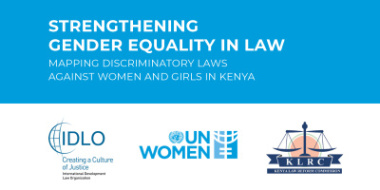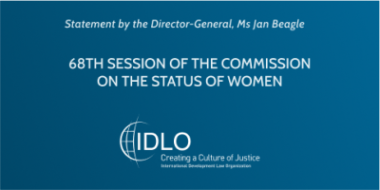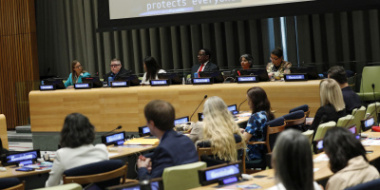Gender Equality
Gender inequality is an affront to human dignity, a challenge to the rule of law and an obstacle to development. Denying women of their rightful place in society – by depriving them of equal access to education, justice or livelihood – means robbing societies of the talent and potential of half of their members. In securing every social need from peace to food, the role of women has been shown to be paramount.
Although gender equality is increasingly a feature of national Constitutions, the law often continues to restrict women's rights and freedoms, dictates their submission to male relatives, or limits what they may own or inherit.
HRC43 | High-level Panel Discussion on 25th Anniversary of the BPFA
43rd Session of the Human Rights Council: High-level Panel Discussion Commemorating the Twenty-Fifth Anniversary of the Beijing Declaration and Platform for Action Adopted at the Fourth World Conference on Women
STATEMENT OF THE INTERNATIONAL DEVELOPMENT LAW ORGANIZATION
Room XX, Palais des Nations, Geneva
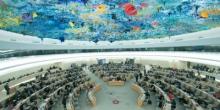
CSW64 | Women Delivering Justice
SIDE EVENT Women Delivering Justice: What's Next for SDG 16.7 and Women Justice Professionals

CSW64 | Justice for Women and Girls
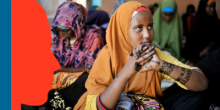
CSW64 | IDLO at the Commission on the Status of Women
In 2020, the global community will mark the twenty-fifth anniversary of the Fourth World Conference on Women and adoption of the Beijing Declaration and Platform for Action (1995).

Access to justice for women entrepreneurs in Jordan
Discrimination faced by women entrepreneurs in Jordan prevents their ability to access justice as they engage in business ventures and seek to resolve disputes, according to a new report.

Mongolia: Combating domestic violence with civil society and students
On December 6, 2019 IDLO teamed up with the School of Law and Social Sciences of the University of Internal Affairs of Mongolia to organize a prize debating competition where more than 300 students came together to compete in teams presenting arguments around common misconceptions about gender-based violence (GBV).

Empowering communities for improved access to HIV services
In sub-Saharan Africa, adolescent girls and young women aged 15 – 19 years account for 74 percent of new HIV infections.

Evaluation of the project "DREAMS: HIV services for adolescent girls and young women"
As part of IDLO’s continuous commitment to accountability and results-based management, IDLO is pleased to share this Evaluation Brief for the project, "Integrating Legal Empowerment and Social Accountability for Quality HIV Health Services for Adolescent Girls and Young Women". The evaluation has been conducted by independent evaluation experts, supervised by IDLO’s Evaluation Unit. This exercise utilized a theory-driven, mixed-method approach, in line with the IDLO Evaluation Guidelines and OECD DAC standards.
Pages
Key Initiatives
-
 The COVID-19 pandemic poses a significant threat to the right to food for populations, and especially for marginalized groups. In many countries, COVID-19 is intertwining with pre-existing factors affecting food security and nutrition, by limiting the access to affordable and nutritious food, including lack of economic opportunities, extreme weather conditions, ongoing conflicts and more.
The COVID-19 pandemic poses a significant threat to the right to food for populations, and especially for marginalized groups. In many countries, COVID-19 is intertwining with pre-existing factors affecting food security and nutrition, by limiting the access to affordable and nutritious food, including lack of economic opportunities, extreme weather conditions, ongoing conflicts and more. -
 As part of IDLO’s continuous commitment to accountability and results-based management, IDLO is pleased to share this Evaluation Brief for the project, "Integrating Legal Empowerment and Social Accountability for Quality HIV Health Services for Adolescent Girls and Young Women". The evaluation has been conducted by independent evaluation experts, supervised by IDLO’s Evaluation Unit. This exercise utilized a theory-driven, mixed-method approach, in line with the IDLO Evaluation Guidelines and OECD DAC standards.
As part of IDLO’s continuous commitment to accountability and results-based management, IDLO is pleased to share this Evaluation Brief for the project, "Integrating Legal Empowerment and Social Accountability for Quality HIV Health Services for Adolescent Girls and Young Women". The evaluation has been conducted by independent evaluation experts, supervised by IDLO’s Evaluation Unit. This exercise utilized a theory-driven, mixed-method approach, in line with the IDLO Evaluation Guidelines and OECD DAC standards. -
 Since the revolution in 2011, Tunisia has experienced a period of significant political transition and change culminating in the adoption of a new constitution in 2014, which called for justice reform and protection of women’s rights. However, the practical application of the framework for legal assistance in Tunisia demonstrates the insufficiency of existing relevant mechanisms. Therefore, there is the strong need to empower women to access justice and claim their rights.
Since the revolution in 2011, Tunisia has experienced a period of significant political transition and change culminating in the adoption of a new constitution in 2014, which called for justice reform and protection of women’s rights. However, the practical application of the framework for legal assistance in Tunisia demonstrates the insufficiency of existing relevant mechanisms. Therefore, there is the strong need to empower women to access justice and claim their rights. -
 For over 15 years, IDLO has been assisting the Government of the Islamic Republic of Afghanistan develop accessible, accountable, effective and efficient justice sector institutions. While significant progress has been made, many challenges remain, frequently perceived to be rooted in the ongoing conflict, the impact of insecurity and the public’s fear for their safety. There is a strong need to address the concerns and goals of the justice sector and find innovative solutions and methods to strengthen its resilience.
For over 15 years, IDLO has been assisting the Government of the Islamic Republic of Afghanistan develop accessible, accountable, effective and efficient justice sector institutions. While significant progress has been made, many challenges remain, frequently perceived to be rooted in the ongoing conflict, the impact of insecurity and the public’s fear for their safety. There is a strong need to address the concerns and goals of the justice sector and find innovative solutions and methods to strengthen its resilience. -
 Lack of access to a fair and equitable justice system is one of the most pressing problems confronting modern Somalia on its path towards stability and reconstruction. Informal justice systems, offering alternative dispute resolution are often much better placed to respond to the immediate justice needs of many Somalis seeking justice, as they have more legitimacy and are more easily accessible. To enhance access to justice in Somalia, it is therefore essential to engage with the alternative dispute resolution systems.
Lack of access to a fair and equitable justice system is one of the most pressing problems confronting modern Somalia on its path towards stability and reconstruction. Informal justice systems, offering alternative dispute resolution are often much better placed to respond to the immediate justice needs of many Somalis seeking justice, as they have more legitimacy and are more easily accessible. To enhance access to justice in Somalia, it is therefore essential to engage with the alternative dispute resolution systems.
Latest Activity
|
Publication
|
|
Policy Statements
|


